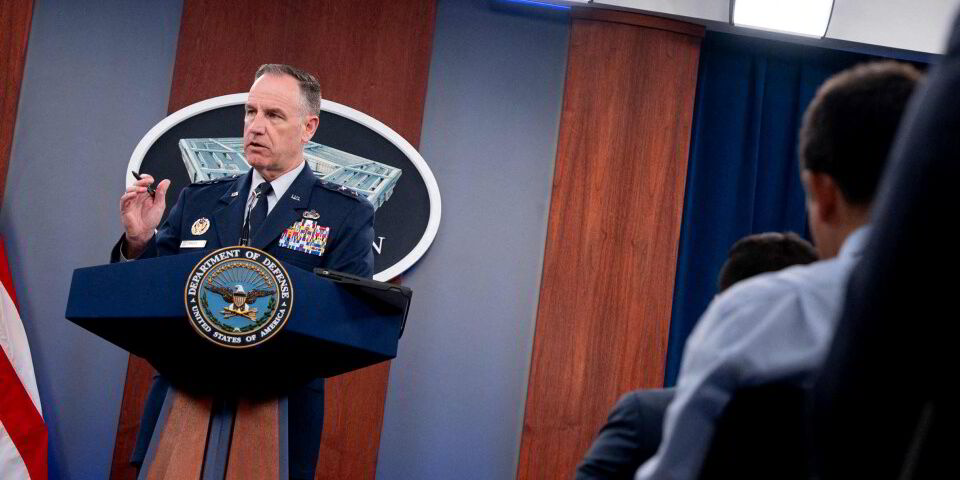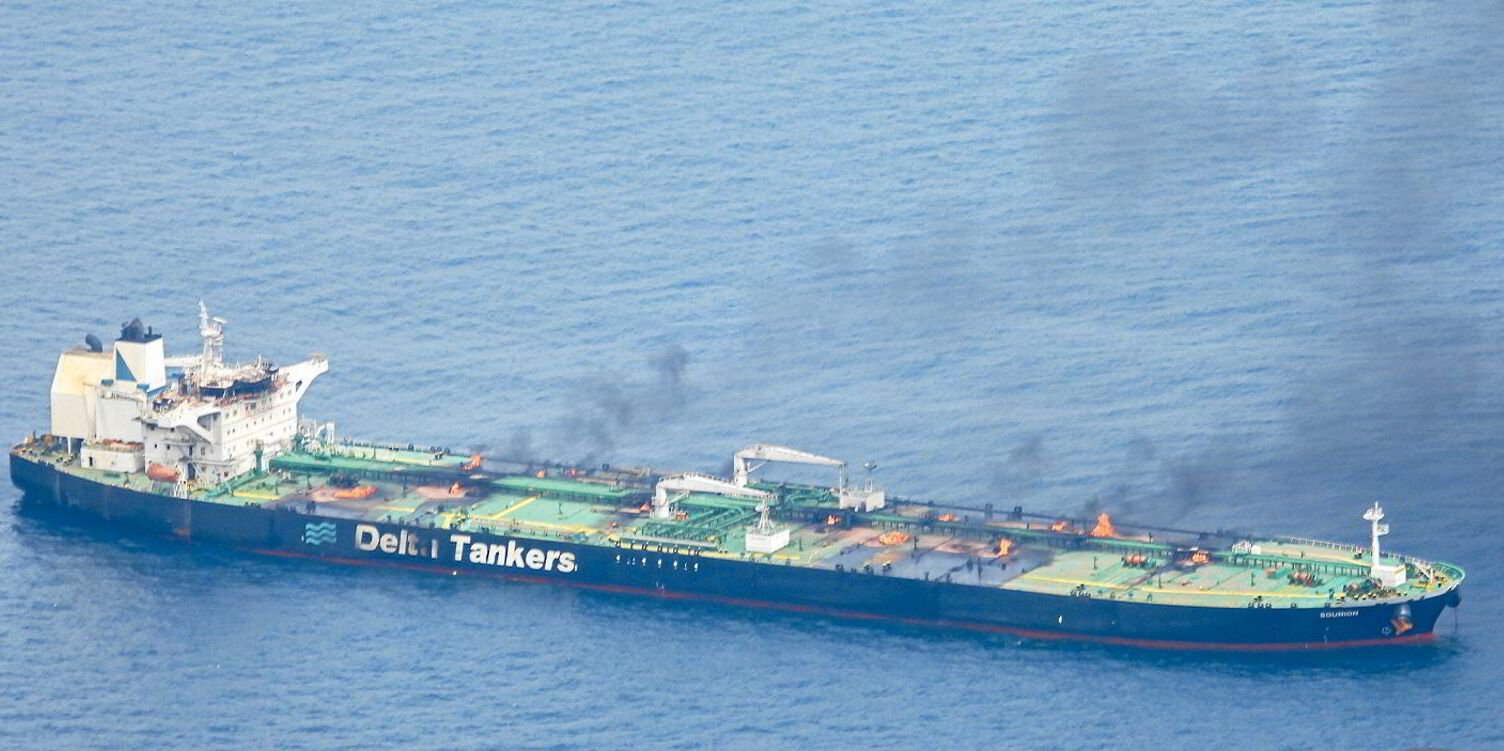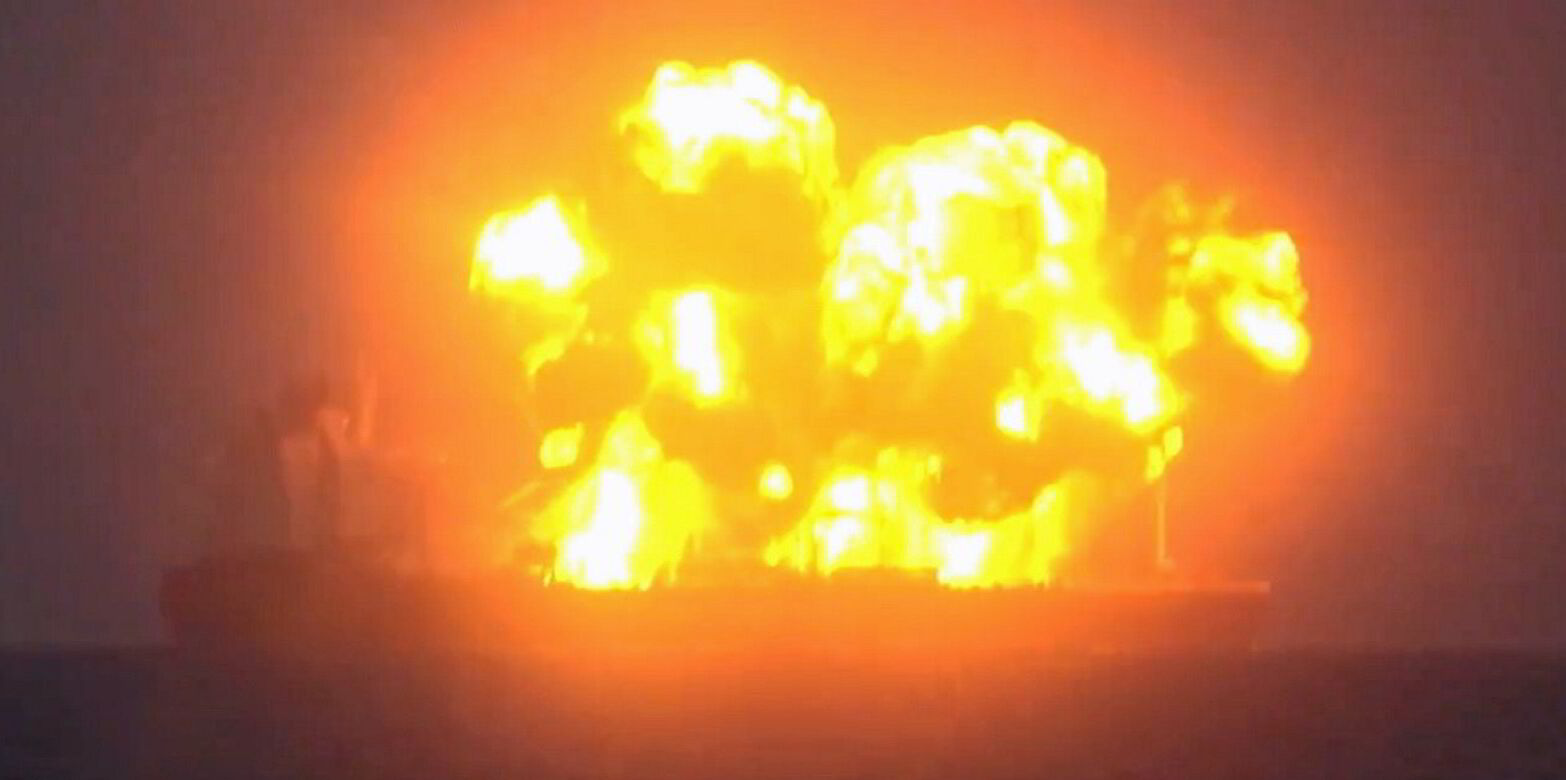The US is going to “keep after” the Houthi threat as questions mount over the effectiveness of the military response to the Yemeni militants’ attacks on shipping.
Air Force major general Pat Ryder, the spokesman for the Department of Defense, told reporters that the US will keep working to ensure freedom of navigation in the Red Sea and Gulf of Aden.
“We’re going to continue to work with the international community to protect those shipping lanes,” he said.
“So we’re going to continue to keep after it.”
His comments at an on-camera press briefing in the Pentagon came after Central Command, which coordinates US forces in the Middle East, said a Bahri tanker was caught up in an attack on Sea Trade Marine’s 149,000-dwt Blue Lagoon I (built 2003).
On the same day, salvors pulled out of a plan to tow the 163,800-dwt Sounion (built 2006), which was abandoned and at risk of an oil spill after a Houthi attack.
The continued violence in the Red Sea and Gulf of Aden, despite the military presence of the US, UK and European Union, has led some pundits to claim that efforts to deter the Houthis have not been successful.
After a reporter asked Ryder whether US forces would change their approach to counter the Houthi threat, he said the US is constantly evaluating the situation.
“It goes back to what it is that we’re working to do, which is to preserve freedom of navigation and to degrade and disrupt Houthis’ capabilities,” he said. “And we’re doing that. We are disrupting and degrading.”
He acknowledged that some missiles and drones are making it through coalition defences.
But he suggested that it is the Iranian-backed Houthis who should think about the harm they are causing.
“The onus is on the Houthis … to look at the impact that they’re having, not only in the short term, but on the long term, as it relates to the environment, the economy and the safety of those that are transiting this important waterway,” he said.





